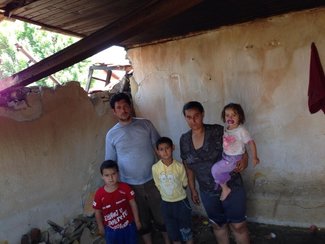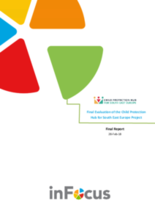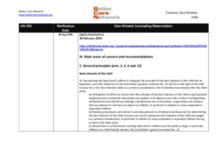

Displaying 221 - 230 of 544
The Child Protection Hub for South East Europe’s (ChildHub) overall objective is to contribute to the realisation of children’s fundamental rights across South East Europe, in particular the rights to be protected from abuse and violence. This report presents the findings of the final evaluation of this project.
This country care review includes the care-related Concluding Observations adopted by the Committee on the Rights of Persons with Disabilities and the Committee on the Rights of the Child.
The aim of this study is to explore whether girls who are in residential care have fewer emotional skills than their peers, and if so, whether these girls have similar socio-emotional skills to girls who also experience disadvantaged environments but live with their families.
The aim of this study was to analyse subjectisuppleve well-being (SWB) among adolescents in care, considering the type of placement in greater depth and how it correlated with several explanatory variables.
This study highlights the plight of children in state orphanages during conditions of war and its aftermath, in order to explore how state narratives trap children between contested notions of the best interests of the child, national belonging, and familial rights.
The aim of this article is to analyse the specific factors which influence adoption breakdown by comparing cases of adoption breakdown which occurred prior to the onset of adolescence with those occurring after the beginning of this developmental stage.
UNICEF is seeking a national expert to provide technical support to the Ministry of Labour and Social Policy in strengthening of the foster care system in the country.
"No one is sure about how many migrant children are living in Spain without their parents — and that's part of the problem," says this article from Voice of America.
This study compared adolescents in residential care (RC) in Portugal, with a Portuguese community sample on the incidence of mental health problems and psychosocial skills, explored gender differences and the relationships between mental health problems and psychosocial competencies.
This chapter describes and proposes a new social inclusion model for supporting unaccompanied minors in becoming autonomous, as they are one of the most vulnerable groups of contemporary migration flows.


